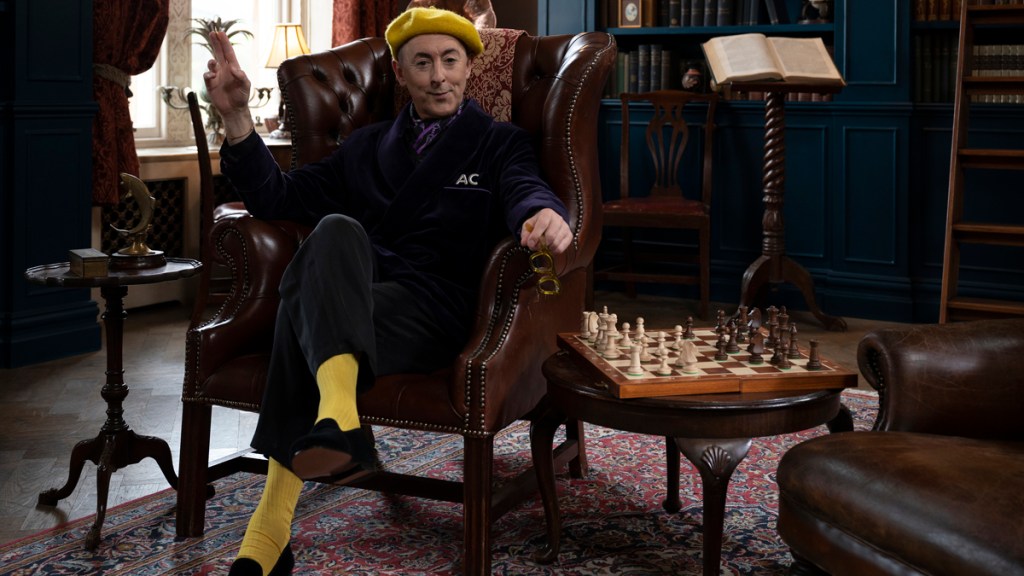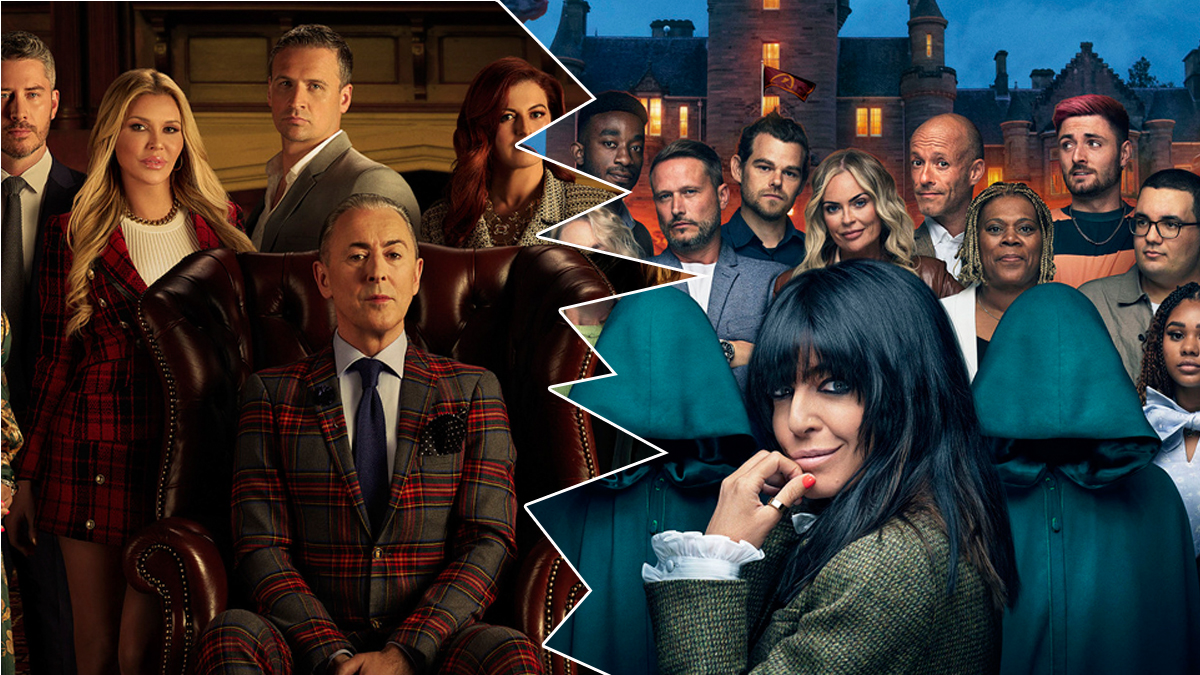It’s the reality TV show that has shaken up the game: when The Traitors arrived in the UK just before Christmas, for a show so at odds with the ‘season of good will’ it was a surprise hit, pulling in over three million viewers and sending social media into meme meltdown.
The show sees 22 contestants arrive at Andross Castle in Scotland to compete in a series of challenges which earn them a joint prize pot of up to £120,000. The twist is that three of the contestants are secretly designated ‘traitors’, and if the rest of the contestants (known as ‘the faithful’) don’t correctly identify them, the traitors steal all the prize money.
At night, the traitors can ‘murder’ one of the faithful, eliminating them from the game, and each evening the remaining contestants gather at the round table to discuss and then vote to ‘banish’ another player, only then discovering whether they’ve caught a traitor or not.
It’s addictive, gripping viewing, so when the BBC announced they’d acquired the US version of the show (which has a $250K prize pot), putting the whole series on BBC iPlayer, fans were delighted to have ten fresh episodes to binge. But how would the US series of The Traitors compare to the UK show?
The answer, to paraphrase Roy Walker, is it’s good (very good, actually) but it’s not quite right. Part of the problem is that – like the original Dutch version of the show – US producers didn’t seem to trust that members of the public would be entertaining enough, so among a few ‘ordinary’ players are several Reality TV veterans, including stars of The Bachelor, Real Housewives and Big Brother.
These are people who are well versed in meaningless, sassy reality TV sound bites, so the first episodes are full of confessional cliches like ‘I was born for this’, ‘trust no one’ and ‘let the games begin’. The UK show, on the other hand, gave us gems like adorably naive Aaron admitting ‘I’m so easy to read, I’m a salesman’s dream’ and care home receptionist and occasional actor Maddy coming out with lines like ‘People think I say stupid things but I did get a B at AS Maths’.
To be fair to the US contestants, they were further out of their comfort zone, having also crossed the pond to film the show at Andross Castle. Amusingly, they all appear to have had a similar thought while packing for Scotland – we recommend playing a game of ‘spot the tartan clothing’ while you watch, although don’t turn this into a drinking game unless you want your stomach pumped.
The challenges are almost identical to the UK version, which makes the differences between the two shows clear – whereas the UK cast was endearingly naff, the US cast veer between the annoyingly, earnestly gung-ho and blatantly playing to the camera, like when Kate (a famously catty cast member of superyacht reality TV series Below Deck) deliberately throws away prize money during the barrel-rolling trial.
Throughout the game, the contestants are overseen by the show’s respective presenters, with mixed results. In the UK, Claudia Winkleman takes to the role instantly, bringing a mischievous merriment which feels crucial to the show’s success. Her impressive wardrobe of statement knits and lady-of-the-manor tweed may heighten the drama, but it’s positively dull in comparison to that of the US presenter, veteran Scottish actor Alan Cumming (The Good Wife), who sports an increasingly costumey, camp and frankly fabulous range of colourful tartan suits.

Cumming’s exquisite apparel makes up for an initially shaky performance – he seems out of his depth at first, fed a cheap, cheesy script that is beneath his talents, and for some reason seems to have been instructed to ham up his native Scottish accent so much that he sounds like Robin Williams in Mrs Doubtfire. He soon warms up, though, leaning into his iconic theatrical playfulness with aplomb, giving Winkleman a real run for her money.
Where the UK version really comes into its own, however, is the contestants’ lack of strategic experience when it comes to reality TV game-playing. From the off, the US contestants treat the nightly round table as an election they need to ‘get the votes’ for by leading cunning recruitment campaigns during the day, manipulating weaker players and almost rehearsing the soundbites needed to banish their contestant of choice.
There’s an artifice to this that takes away some of the magic, whereas in the UK Traitors the players’ discussions are much more spontaneous and authentic, and the banishment votes seem more from the heart and in the moment, rather than informed from pre-agreed allegiances. This leads to some incredible TV moments, like magician Tom momentarily losing his mind and revealing he’s fellow contestant Alex’s secret boyfriend, causing an almighty row at breakfast, and Maddy doggedly going after certain contestants with an admirable but often misguided confidence.
All in all, while The Traitors UK was a uniquely thrilling, reality TV feast to savour, The Traitors US is a processed but ultimately still satisfying portion of empty calories. Bring on Series 2.
